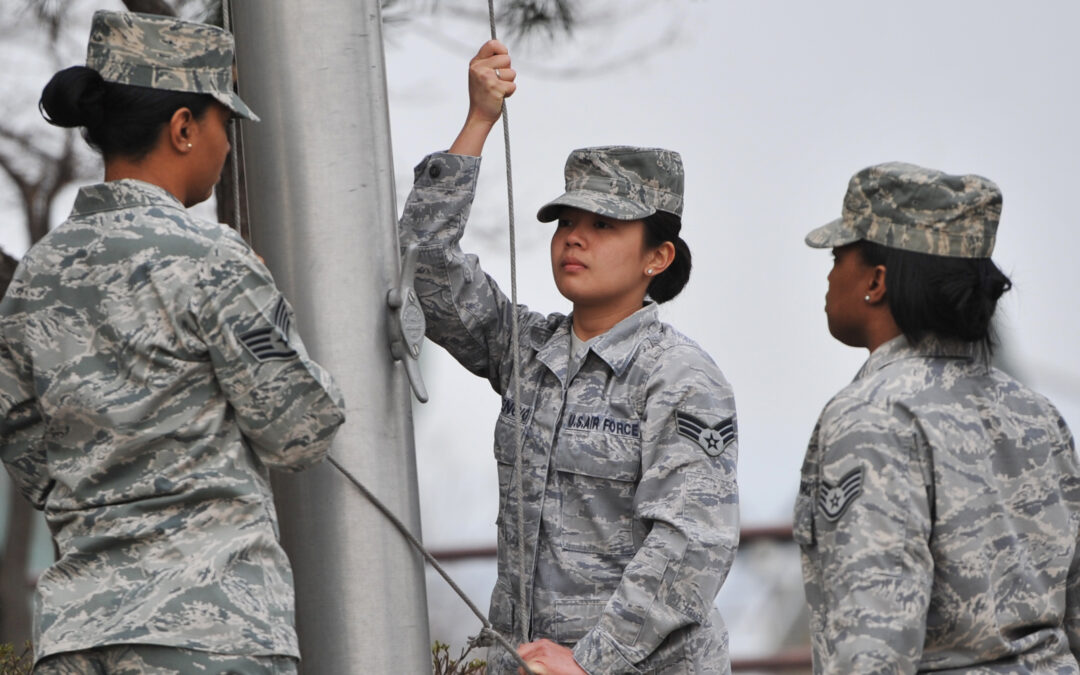As April Diversity Month comes to a close, I’m grateful for recently gathering with my esteemed sisters-in-arms and fellow military supporters at the Federally Employed Women (FEW) Western Regional Training Program. I’ve been involved with FEW, a nonprofit organization, for several years and am currently the Military and Diversity Chairman. At our recent meeting, I was honored to be the keynote speaker and talk candidly about my experiences with equity and diversity in the U.S. Armed Forces.
Many military and civilian workers aren’t familiar with FEW and the influence it has on women’s rights, or its many advocacy programs. Let’s take a look at how FEW has helped blaze the trail for today’s working women and how it continues to support women in the federal government.
What Is FEW?
FEW is a private, non-profit organization founded in 1968 after President Lyndon B. Johnson’s Executive Order officially prohibited sexual discrimination within the federal government
Today FEW continues to raise awareness about sexual discrimination and the advancement of women in federal service. The organization does this by:
- Encouraging diversity and equality in the workplace
- Enhancing career opportunities
- Establishing and maintaining relationships with organizations to advocate for the fair application of women’s rights and laws, policies, procedures, and practices
- Improving the quality-of-life for women by influencing legislative actions
- Committing to maintain a unified and diverse membership
- Providing women with opportunities for professional growth
What Is FEW’s Mission?
The organization is focused on promoting equity and quality for women in the federal workplace. Few’s organizers and members fight the good fight for fair treatment, equal opportunities, and diverse representation of women in all branches of the military. FEW also provides education, training, and networking opportunities to its members.
What’s the History of FEW?
The 1960s marked a time of significant change in the United States and ignited the passion for civil rights, women’s rights, and environmental protections. Late in the decade, a group of women working for the federal government came together to discuss the lack of opportunities and representation in the workplace. They soon formed Federally Employed Women (FEW).
Since its inception, FEW has played a crucial role in advancing women’s rights and promoting equity in the federal government. In the early years, FEW lobbied Congress to eliminate gender-based discrimination in the workplace. The organization’s advocacy efforts led to the passage of several important laws, including the Pregnancy Discrimination Act of 1978, which prohibits discrimination against pregnant employees.
Despite advancements, working women continued to face discrimination in pay, promotions, and opportunities—and sexual harassment. Although more women are in the federal workforce, only a few women hold leadership positions in the military and many are still excluded from key decision-making processes.
What Is FEW Doing Today?
FEW currently has over 100 chapters across the United States, with more than 5,000 members. The organization partners with other advocacy groups to promote women’s rights and equity in the workforce.
FEW also offers a variety of programs and services for its members, like professional development training, mentoring opportunities, and networking events—much like the training program I just participated in.
Want to Learn More about Few?
Federally Employed Women (FEW) is a nonprofit organization that has been advocating for women’s rights and equity in the federal workforce for over 50 years. Playing a critical role in advancing policies and legislation that promote fairness and diversity in the workplace, FEW’s work has made a significant impact on the lives and careers of women in the federal government.
If you’re passionate about equity and inclusion and would like to support FEW’s mission, consider becoming a member or volunteering your time and skills to help advance their goals. Together, we can continue to make progress toward a more equitable and inclusive workforce.
If you’d like to learn more about my involvement in FEW and the military, advocacy for domestic and sexual abuse survivors, or my new book (“War at Home”), please don’t hesitate to contact me directly at Jakia@jmlindley.com.


